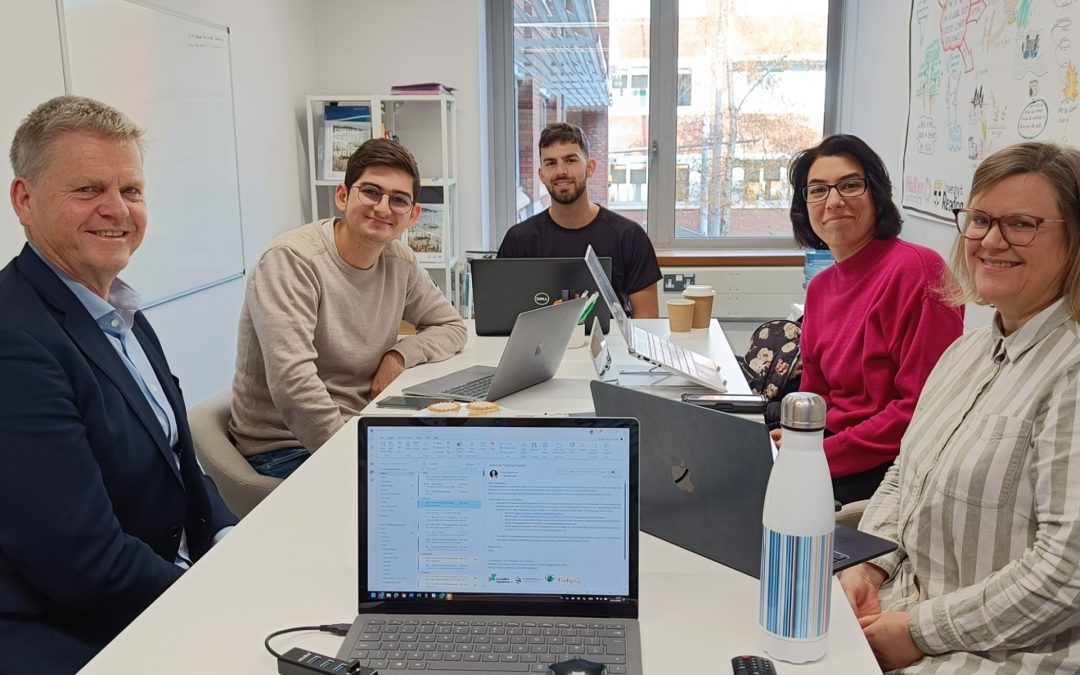Written by Ismail Beyaz; PhD student with SCENARIO DTP, University of Reading,UK
This blog is adapted from an interview conducted by the COPCAS studio with Robert Van Der Noort, CBE, Vice Chancellor of the University of Reading, on November 15th, 2024 (More information about the Vice Chancellors background can be found here, on the University website).
Starting his career as an archaeologist, Professor Van De Noort studied wetlands and coastal areas, assessing how societies could live in coastal contexts. An amalgamation of Professor Van der Noot’s work eventually culminated in a book titled “Climate Change Archaeology”, which discusses “how archaeology could help us understand how people adapt to sea level rise” from his own research.
Some of his most significant and recent achievements have come during his time as Vice Chancellor of the University of Reading, a leader in climate change research and recognised as a sustainable university. ‘When I arrived, I found a university already deeply committed to addressing climate change,’ he reflects. ‘However, I also understood that leading a university means leading with values. Beyond caring for students and colleagues and fostering a strong organisation, a university must ask itself: what is it truly contributing to the world?’
With this aim of fostering a culture of leading by example, he explains how the university came to be the greenest university in the UK, ‘It was partly my own vision but also largely shaped by feedback from colleagues, who emphasised that the one thing we could excel at was becoming the greenest university. Whether that means being the greenest university in the UK, the world, or simply being the best version of a green university, we can be—that was the idea we embraced’. Since these initial thoughts and ideas, The University of Reading has consistently earned awards for its sustainability and environmental initiatives from this initial vision. Through its ‘Partnering for the Planet’ program, the university has strengthened its commitment to tackling climate change and promoting sustainable practices. However, as Professor Van de Noort underscores, their mission is ongoing, and there is always more work to be done, “The real question is what is next”.
Van de Noort explains, “The next step is thinking about how we can use that expertise and that reputation to build a stronger international role”. In addition, ‘he emphasises that leading other universities by demonstrating value-driven leadership is powerful and beneficial for the organisation as a whole”. While the University of Reading may not be the greenest university every year in perpetuity (and not in every aspect), he says his aspiration would be that in five or ten years, when discussions arise regarding the greenest university in the world “The University of Reading would be one that naturally comes into discussion”.
Another critical point of discussion was working with local communities. Alongside his work with the University, Van de Noort serves as Deputy Lieutenant for Berkshire, is a member of the Berkshire Business Board, and acts as a patron for Launchpad, a Reading-based homelessness charity. He was also appointed as a CBE in recognition of his contributions to flood risk management and sustainability. He emphasises that local communities play a key role in his work with the university and in understanding the role of an institution outside of its own grounds. In addition, he argued that organisations have an “absolute role” to try to make grounds for a better future for all. He stated if he asks people to “do as I say, not as I do, we are losing everybody”.
In the interview, Van De Nort stated: “We have to be green ourselves as an organisation. That means cutting our carbon, being as biodiverse in our estate management as we can be, but also, because climate change is not going to be resolved by the University of Reading counting its carbon, […] our role now is to step out of that ivory tower and start to help our local authorities, local and regional business as well as regional authorities to make that transition to net zero carbon.” Evidently, the University has achieved much already and can now achieve much more, helping the community and affecting change outside the university.
To finish up, when asked if he has any last pieces of advice, he says, “I know it can be frustrating, but […] we must keep talking about climate change, […] trying to make small steps or big steps that will help offset the worst impacts of climate change in the years to come”.


